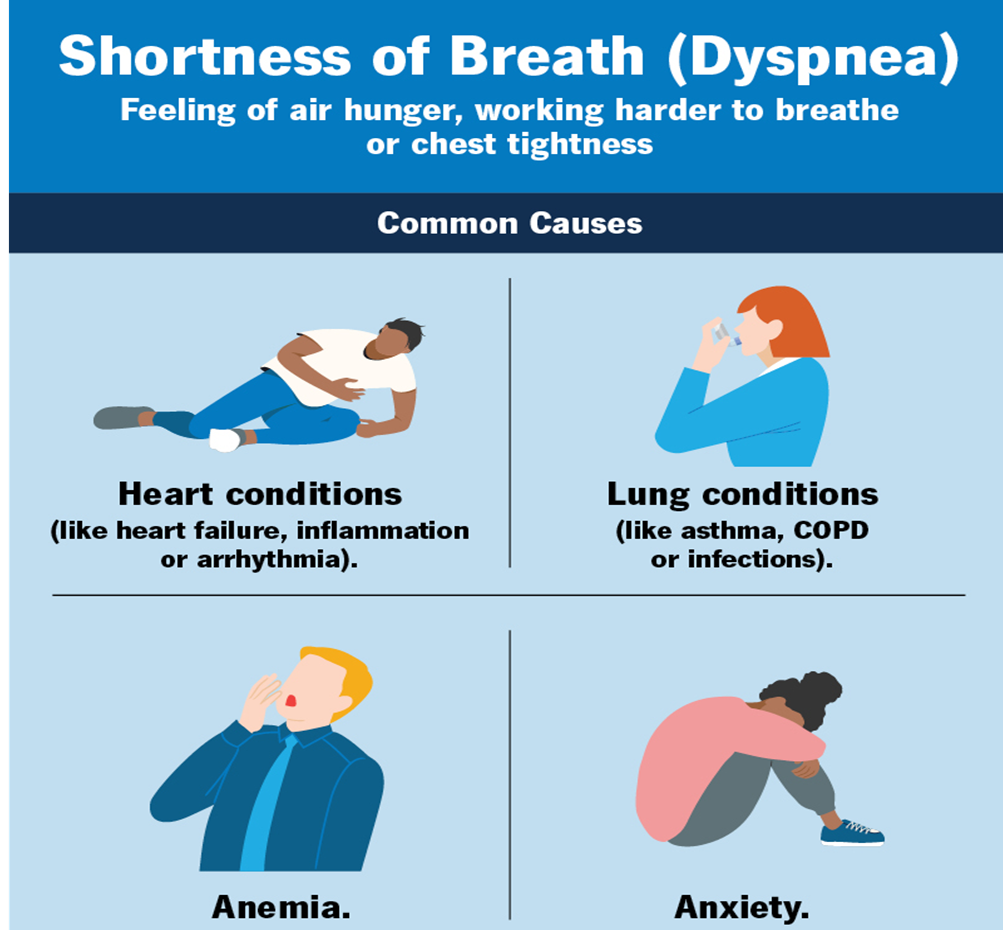A nurse is caring for a client who is in premature labor and is receiving terbutaline. The nurse should monitor the client for which of the following adverse effects that should be reported to the provider?
Dyspnea
Headaches
Nervousness
Tremors
The Correct Answer is A
Choice A reason:
Dyspnea: Dyspnea, or difficulty breathing, is a serious adverse effect that should be reported immediately. Terbutaline can cause pulmonary edema, a condition where fluid accumulates in the lungs, leading to severe breathing difficulties. This side effect is critical and requires prompt medical attention to prevent further complications.

Choice B reason:
Headaches: While headaches are a common side effect of terbutaline, they are generally not considered severe enough to require immediate reporting unless they are persistent or unusually intense. Headaches can be managed with over-the-counter pain relief and do not typically indicate a serious problem.
Choice C reason:
Nervousness: Nervousness is another common side effect of terbutaline. It is usually mild and does not require immediate medical intervention. However, if the nervousness is severe or accompanied by other symptoms, it should be discussed with a healthcare provider.
Choice D reason:
Tremors: Tremors are a known side effect of terbutaline and are usually not severe. They occur due to the medication’s action on the nervous system. While they can be bothersome, they are not typically dangerous and do not require urgent reporting unless they are severe or persistent.
Nursing Test Bank
Naxlex Comprehensive Predictor Exams
Related Questions
Correct Answer is A
Explanation
Choice A reason:
The indirect Coombs test is used to detect Rh-positive antibodies in the mother’s blood. This test is crucial for Rh-negative mothers who have given birth to Rh-positive infants. It helps determine if the mother has been sensitized to Rh-positive blood and has developed antibodies against it. If these antibodies are present, they can cross the placenta in future pregnancies and attack the red blood cells of an Rh-positive fetus, leading to hemolytic disease of the newborn.
Choice B reason:
The statement “It determines the presence of maternal antibodies in the newborn’s blood” is incorrect. The indirect Coombs test is performed on the mother’s blood, not the newborn’s. It screens for antibodies that could potentially harm the fetus in future pregnancies. The direct Coombs test, on the other hand, is used to detect antibodies that are already attached to the newborn’s red blood cells.
Choice C reason:
The statement “It detects Rh-negative antibodies in the newborn’s blood” is incorrect. The indirect Coombs test does not detect Rh-negative antibodies in the newborn’s blood. Instead, it identifies antibodies in the mother’s blood that could react against Rh-positive red blood cells. This test helps in assessing the risk of hemolytic disease in future pregnancies.
Choice D reason:
The statement “It determines if kernicterus will occur in the newborn” is incorrect. Kernicterus is a severe form of jaundice caused by high levels of bilirubin in the blood. While the Coombs test can help identify hemolytic disease, which can lead to jaundice, it does not directly determine the risk of kernicterus. The primary purpose of the indirect Coombs test is to detect antibodies that could cause hemolytic disease in future pregnancies.
Correct Answer is A
Explanation
The correct answer is a) A client who is experiencing preterm labor at 26 weeks of gestation.
Choice A reason:
Tocolytic therapy is primarily used to delay preterm labor, which is defined as labor occurring before 37 weeks of gestation. The goal of tocolytic therapy is to prolong pregnancy, allowing more time for fetal development, particularly lung maturation. At 26 weeks of gestation, the fetus is significantly premature, and delaying labor can improve neonatal outcomes by reducing the risks associated with preterm birth, such as respiratory distress syndrome, intraventricular hemorrhage, and necrotizing enterocolitis. Tocolytics can help delay labor for 48 hours to 7 days, providing a critical window for administering corticosteroids to enhance fetal lung maturity.
Choice B reason:
Braxton-Hicks contractions, also known as “false labor,” are irregular and usually painless contractions that occur during pregnancy, typically starting in the second trimester. These contractions do not lead to cervical dilation and are not indicative of true labor. Therefore, administering tocolytic therapy to a client experiencing Braxton-Hicks contractions at 36 weeks of gestation is unnecessary and inappropriate. The primary purpose of tocolytics is to manage true preterm labor, not false labor.
Choice C reason:
A post-term pregnancy is defined as a pregnancy that extends beyond 42 weeks of gestation. In such cases, the primary concern is the potential for complications related to prolonged gestation, such as macrosomia, oligohydramnios, and placental insufficiency. Tocolytic therapy is not indicated for post-term pregnancies because the goal is not to delay labor but rather to manage the risks associated with prolonged pregnancy. Induction of labor or close monitoring is typically recommended for post-term pregnancies.
Choice D reason:
In the unfortunate event of fetal death at 32 weeks of gestation, the focus of care shifts to the safe and compassionate management of the mother’s health and well-being. Tocolytic therapy is not appropriate in this context, as there is no benefit to delaying labor. Instead, the healthcare team will discuss options for delivery and provide emotional support to the grieving parents. The priority is to ensure the mother’s physical and emotional health during this difficult time.
Whether you are a student looking to ace your exams or a practicing nurse seeking to enhance your expertise , our nursing education contents will empower you with the confidence and competence to make a difference in the lives of patients and become a respected leader in the healthcare field.
Visit Naxlex, invest in your future and unlock endless possibilities with our unparalleled nursing education contents today
Report Wrong Answer on the Current Question
Do you disagree with the answer? If yes, what is your expected answer? Explain.
Kindly be descriptive with the issue you are facing.
